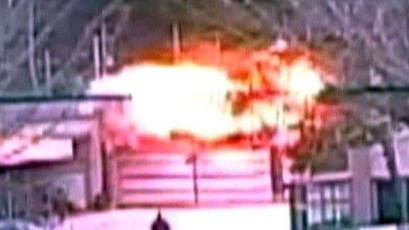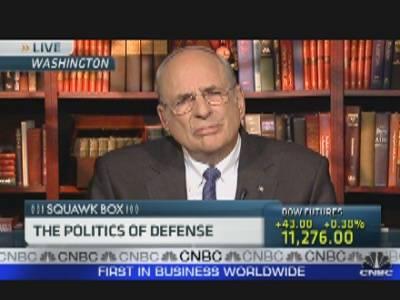SKorean jets will bomb North if it attacks again
SEOUL, South Korea – South Korea's next defense chief threatened Friday that jets would bomb the North if it stages another attack like last week's deadly shelling as he outlined a tough new military policy toward the rival neighbor.
President Lee Myung-bak's government is suffering intense criticism that its response to North Korea's Nov. 23 barrage on a South Korean island was weak, and over the stunning revelation that the South's spy chief dismissed information in August indicating the North might attack the front-line island of Yeonpyeong.
Lee's nominee, Kim Kwan-jin, told a parliamentary confirmation hearingthat further North Korean aggression will result in airstrikes. He said South Korea will use all its combat capabilities to retaliate.
"In case the enemy attacks our territory and people again, we will thoroughly retaliate to ensure that the enemy cannot provoke again," Kim said. The hearing is a formality as South Korea's NationalAssembly does not have the power to reject Lee's appointment.
Kim said it will be difficult for North Korea to conduct a full-scale war because of its weak economy and concerns over a plan to transfer power from ailing leader Kim Jong Il to his young, untested son, KimJong Un.
Despite the bold declarations, questions have been raised about Lee's readiness — and even willingness — to stand up to the North. The president has been criticized for leading a military whose response to the attack was seen as too slow and too weak. The North fired 170 rounds, compared with 80 returned by South Korea.
Satellite photos showed only about 10 South Korean rounds landed near North Korea's army barracks along the west coast, according to the office of lawmaker Kwon Young-se, who said he saw the images provided Thursday by the National Intelligence Service.
Despite the pressure, Lee must balance calls for a harsh response with the knowledge that Seoul — a city of more than 10 million people and the economic heart of the country — lies only 30 miles (50 kilometers) from the Koreas' heavily militarized border and within easy range of North Korean artillery.
South Korea's Yonhap news agency reported Friday that North Korea has recently improved its ability to hit the capital: North Korea now has 5,200 rockets, about 100 more than it used to, the agency said, citing an unidentified South Korean military source. The South Korean Joint Chiefs of Staff said it could not confirm the report because it involves military intelligence.
Kim and other senior South Korean officials have warned the North will likely strike again. Kim said Friday that North Korea's leadership and military are South Korea's "main enemy."
China, which is North Korea's only major ally, has pressed for an emergency meeting of the six nations that previously negotiated over the North's nuclear program: the two Koreas, China, Russia, Japan and the United States.
North Korea walked away from those disarmament-for-aid talks in April 2009 but has said it now wants to restart them. Washington, Tokyo and Seoul are wary of talking with the North, and their top diplomats planned to meet in Washington on Monday to plot a strategy on dealing with the country.
Although it won't be part of that meeting, China said Thursday it would keep a "close watch" on the talks and sounded upbeat about what they could achieve.
Chinese Foreign Ministry spokeswoman Jiang Yu said in a statement that she also hoped the three countries would consider China's proposal for the emergency consultations. Earlier Thursday, Jiang said that Russia had expressed interest. South Korea, Japan and the U.S. have reacted coolly to the suggestion.
Meanwhile, President Lee said he believes there are signs of change in North Korea, citing the presence of private markets and a growing number of defections to South Korea.
"What should be noted is the change of the North Korean people rather than the change of its leaders," Lee said in comments on the presidential website.
http://news.yahoo.com/s/ap/20101203/ap_on_re_as/as_koreas_clash




Tidak ada komentar:
Posting Komentar